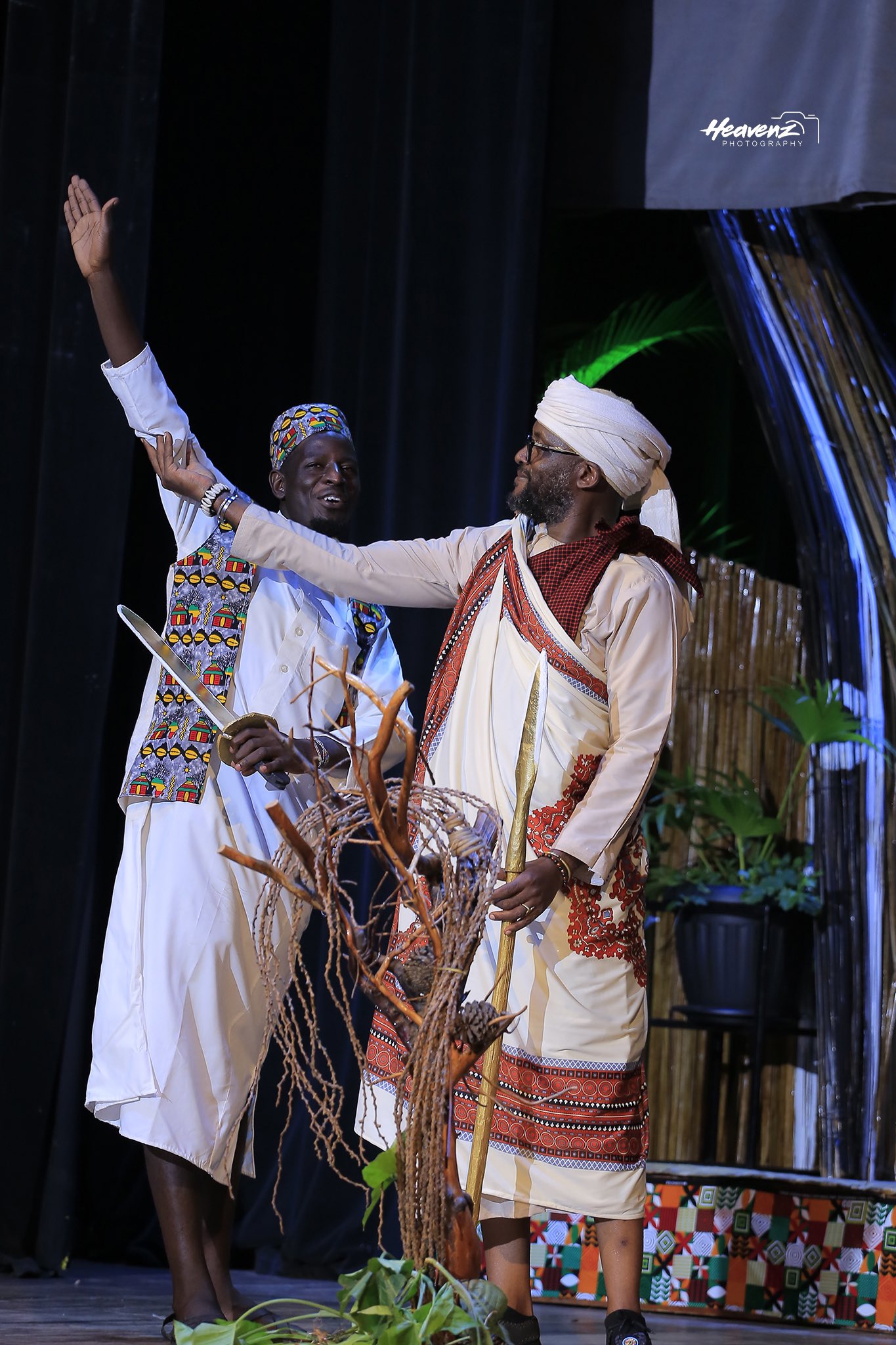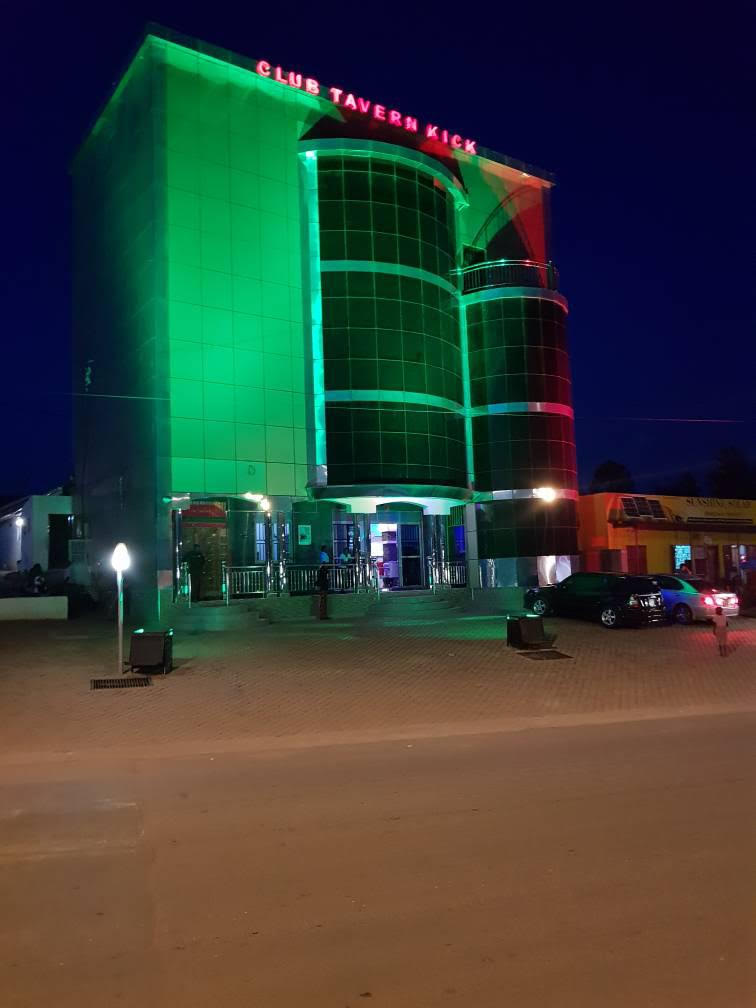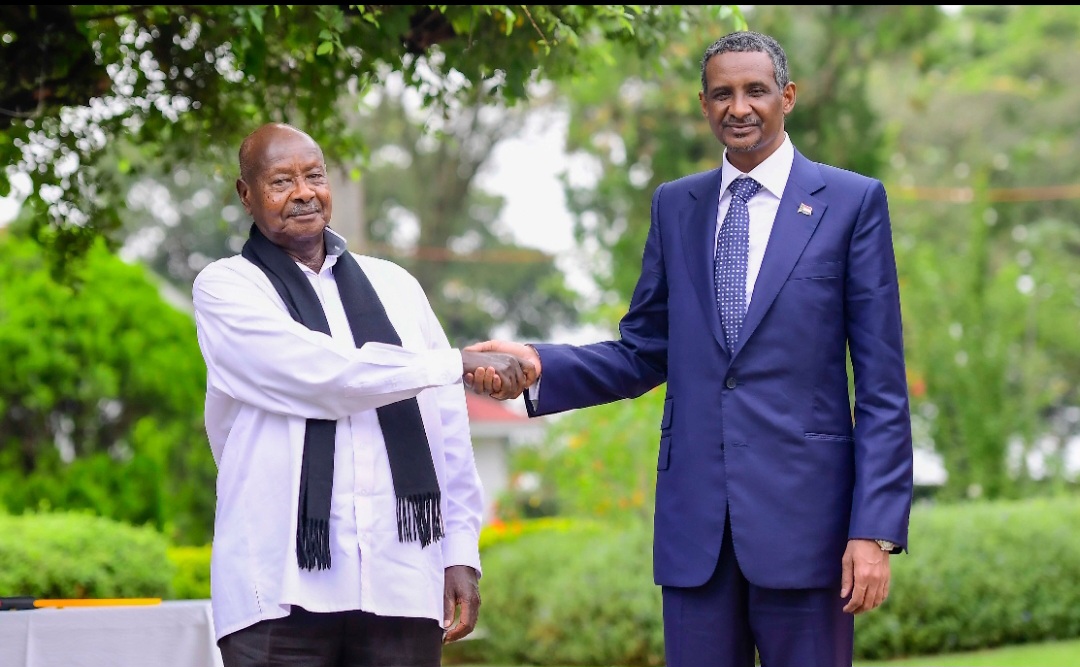In the heart of Uganda’s cultural landscape, a theatrical phenomenon has emerged, breathing new life into the canvas of creativity. John Ssegawa, a maestro in the realm of dramatic artistry orchestrated a masterpiece that not only captivates but also rekindles a fervour for the timeless essence of Ugandan arts and love for theatre plays.
His magnum opus, ‘The Golden Calabash,’ shown on Christmas and Boxing Day stands as a testament to the resilience and enduring beauty of Uganda’s artistic heritage, a real flavour of art and comedy.
Nestled within the vibrant tapestry of Ugandan culture, ‘The Golden Calabash’ unfolds as a theatrical marvel, a spectacle that transcends mere entertainment. Ssegawa, renowned for his ability to seamlessly blend tradition with innovation, weaves a narrative that celebrates the rich heritage of Uganda while embracing contemporary nuances.
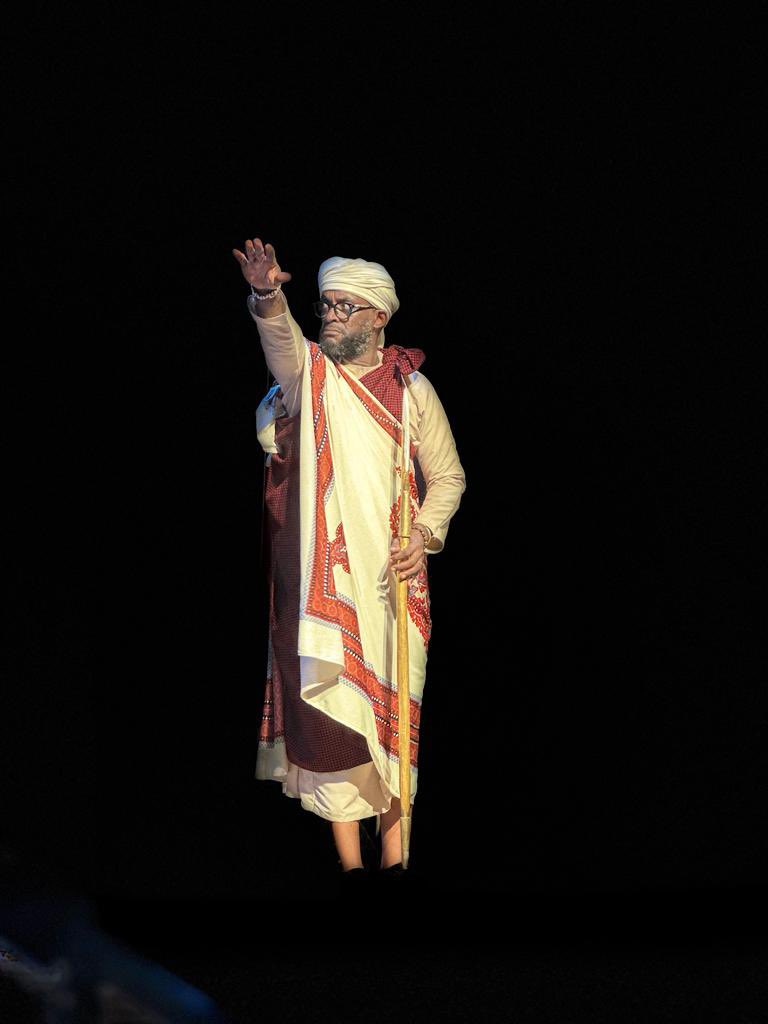
The play’s opening night was a testament to its allure. As the curtains unveiled a stage adorned with vibrant hues reminiscent of Uganda’s diverse landscapes, a palpable anticipation filled the air. From the rhythmic beats of traditional drums to the melodious tunes echoing traditional folk tales, the ambience exuded an aura of authenticity.
The Golden Calabash
‘The Golden Calabash’ transports its audience into a realm where folklore dances with modern storytelling. The mesmerizing tale woven by John Ssegawa’s artistic finesse unfurls a gripping saga steeped in tradition and political intrigue.
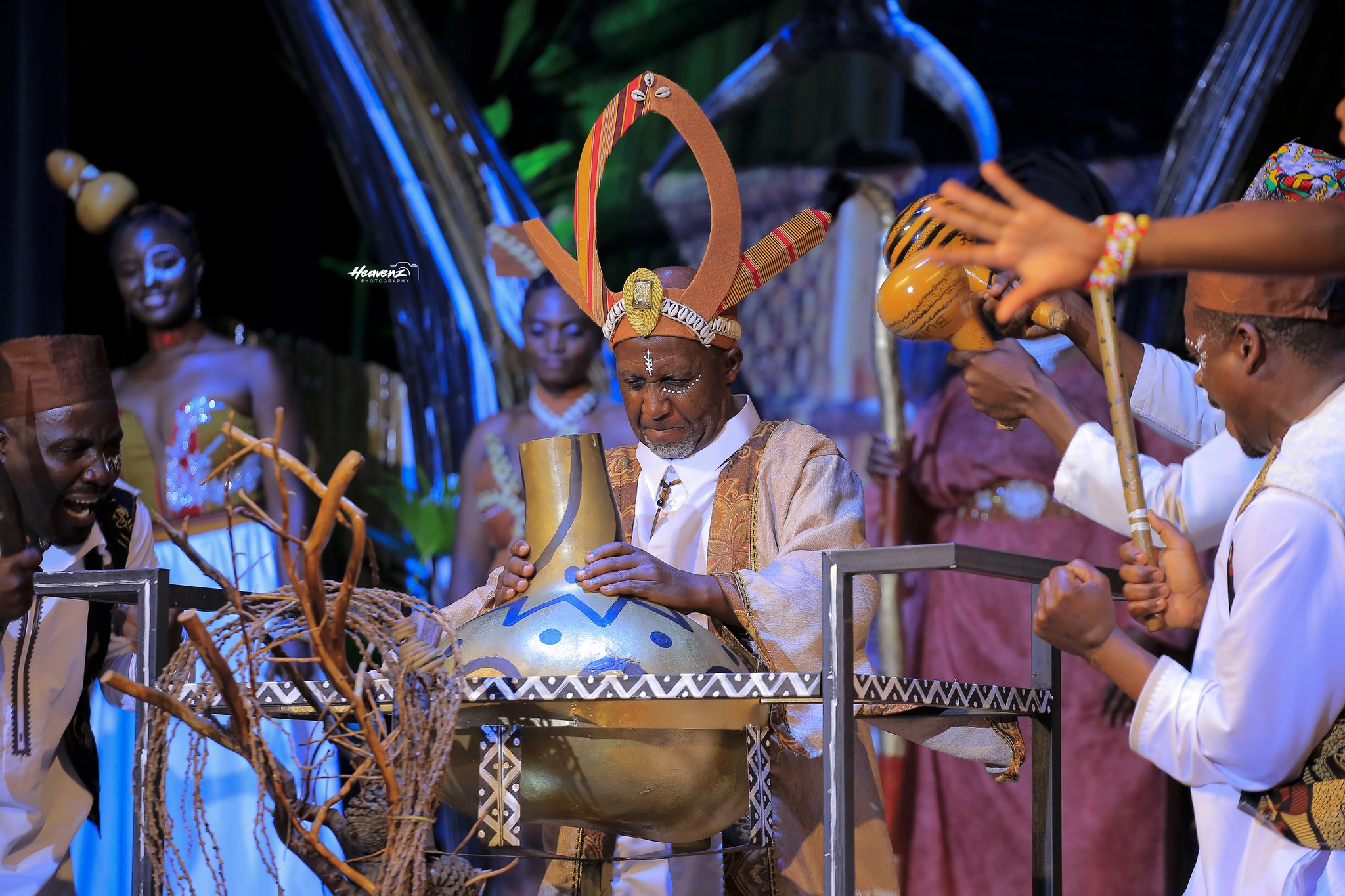
At its heart lies the portrayal of a cultural leader, resolute in retaining his throne, whose ambitions drive him to extraordinary lengths to safeguard his political dominion.
The storyline traverses the tumultuous path of this cultural leader, his determination manifesting in ruthless directives to eliminate all potential threats to his reign. The stage becomes a canvas where the clash between tradition and ambition plays out vividly—a battle for power and legacy, echoing the complexities of leadership and the human condition.
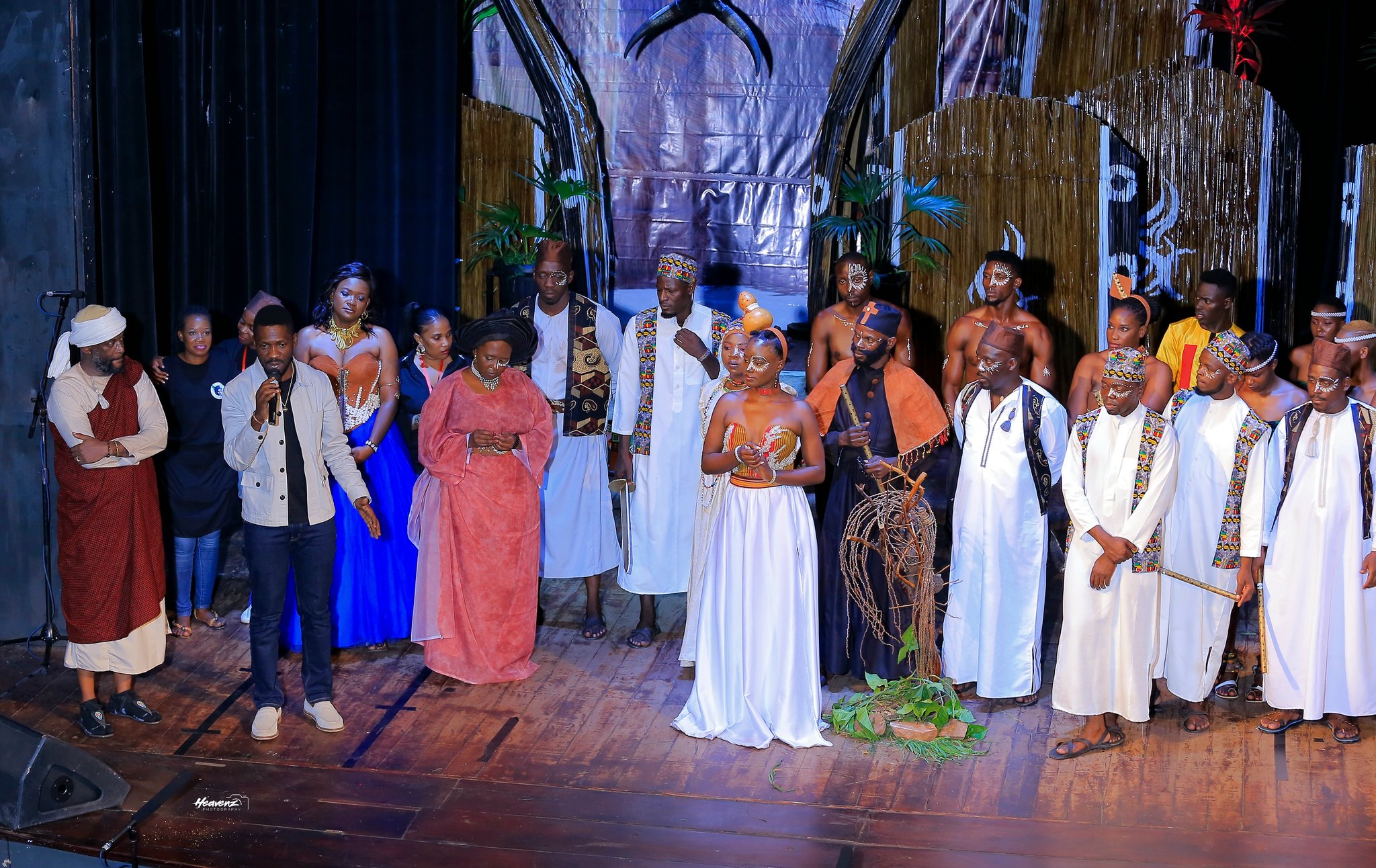
Despite the leader’s calculated and intense efforts, fate intervenes, weaving an unexpected twist into the narrative. The cherished throne, the epitome of his aspirations, slips from his grasp and into the hands of a much younger leader, not even in the line of succession.
The audience witnesses the intricacies of power dynamics, where resilience clashes with destiny, and traditional norms collide with the winds of change.
Ssegawa’s astute storytelling prowess amplifies the tensions and complexities of the cultural leader’s journey. Within the theatre and outside the play has become a mirror reflecting the paradoxes of authority and the inevitable march of time.
Through this dramatic retelling, ‘The Golden Calabash’ delves deep into the human psyche, unravelling the desires, flaws, and vulnerabilities that underpin the pursuit of power and tradition.
Amidst the intricate narrative, the golden calabash emerges as a potent symbol a testament to the heritage and unity of Uganda’s diverse cultures. Its significance transcends the plot’s turmoil, symbolizing the intrinsic values that bind communities, standing as a reminder of the enduring cultural wealth that defines the nation. Above all, it’s a sign that Uganda’s art can be revived.
Art and Creativity aura of theatre flavour
Ssegawa’s vision goes beyond mere entertainment; it is a crusade to preserve and revitalize Uganda’s cultural ethos. The play serves as a bridge between the past and the present, where ancient traditions find resonance in contemporary consciousness. Through this, ‘The Golden Calabash’ not only entertains but also educates, fostering a renewed appreciation for Uganda’s artistic heritage among audiences young and old.
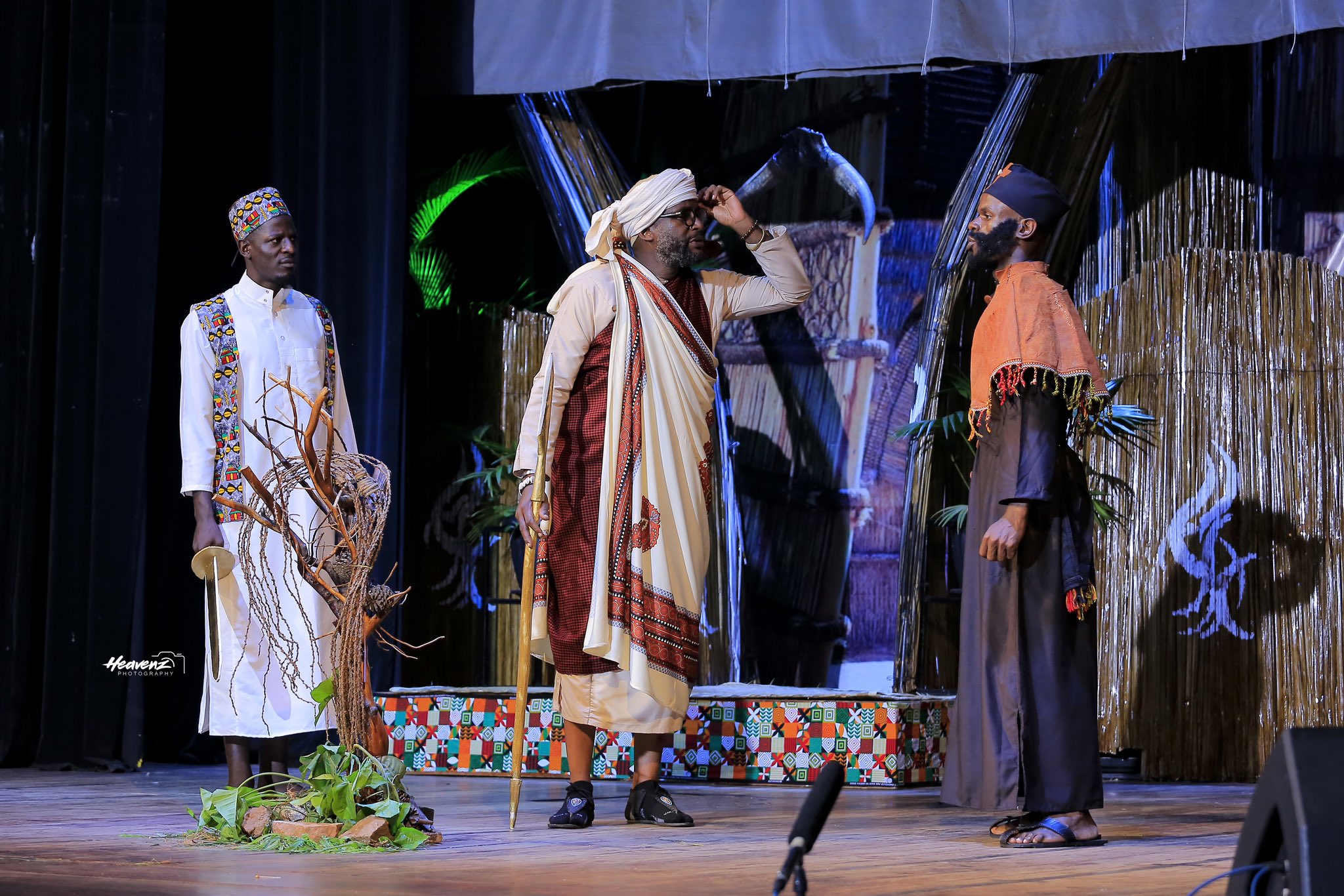
Beyond the theatrical brilliance, Ssegawa’s opus sparked a cultural awakening. Conversations sparked by the play transcend the walls of the theatre, resonating within communities, schools, and artistic circles. It ignited a flame, urging Ugandans to delve deeper into their roots, fostering a sense of pride in their rich cultural heritage.
Costumes:
The costumes are a kaleidoscope of colours and textures, reflecting the diversity of Uganda’s traditions. Actors adorned in intricately woven fabrics that boasted bold patterns and vibrant hues—cream, earthy browns, vivid black and white, and lively yellows dominate the attire. Traditional attire, including backcloth for women and kanzu for men, adorned with exquisite beadwork and embroidery, adorns the characters. Elaborate headdresses, colourful wraps, and accessories crafted with meticulous detail accentuate the authenticity of the characters’ cultural identities.
Stage:
The stage design transported the audience to Uganda’s varied landscapes. A backdrop painted with sweeping vistas of Uganda’s lush forests leads as a visual homage to the country’s natural beauty.
Intricately carved wooden props and set pieces, reminiscent of traditional Ugandan architecture, dot the stage, adding depth and authenticity to the scenes. Traditional musical instruments, such as drums and stringed instruments, are showcased prominently, symbolizing the heartbeat of Ugandan culture.
Overall, the costumes and stage design in ‘The Golden Calabash’ intricately weave together elements that celebrate Uganda’s rich cultural heritage. The visual spectacle resonates with authenticity, evoking a sense of pride and nostalgia among the audience as they immerse themselves in the captivating narrative.
‘The Golden Calabash’ is more than a play; it is a catalyst for change, a clarion call to safeguard and cherish Uganda’s arts. Ssegawa’s dedication to reviving and perpetuating this cultural legacy serves as an inspiration for a generation yearning to embrace its roots while stepping boldly into the future.
As the curtains draw to a close after each mesmerizing performance, the audience departs not just entertained but enlightened. ‘The Golden Calabash’ stands tall, not merely as a theatrical feat but as a testament to the eternal beauty and enduring charm of Uganda’s arts, rekindling a fervour for creativity that is intrinsic to the nation’s soul.
Do you have a story in your community or an opinion to share with us: Email us at Submit an Article



